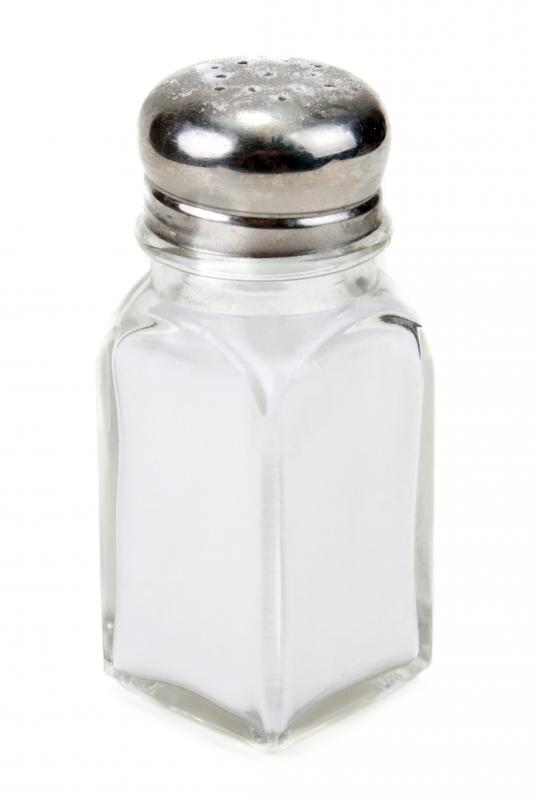At DelightedCooking, we're committed to delivering accurate, trustworthy information. Our expert-authored content is rigorously fact-checked and sourced from credible authorities. Discover how we uphold the highest standards in providing you with reliable knowledge.
What is Brine?
Brine is a solution of salt and liquid with an extremely high salinity content. It has been used historically in food production as a preservative, since salt inhibits the growth of bacteria. The solution can also be used as a marinade for meats before they are roasted, grilled, smoked, baked, or broiled. Brined meat is more tender and flavorful, as well as moist, and many cooks greatly enjoy experimenting with brining.
A wet brine typically uses water and salt, although other liquids such as fruit juices can be used as well. The salt content should be high enough to float a raw egg. Food can also be dry brined in pure salt, although this technique tends to be used more for preservation than marinating. In addition to salt, the solution can contain an assortment of herbs and spices for flavor.

When used in food preservation, brining is a form of pickling, although pickling can also be accomplished with extremely acidic mixtures. The goal of brining in this case is to preserve food without allowing bacteria to grow. Moist foods may be dry brined, with the salt being used to draw out moisture. This is the case with sauerkraut, which was traditionally made in large barrels packed with salt. Pickled foods tend to be sour and salty, making them excellent condiments.

When used as a marinade, brine serves several functions. The first is as a tenderizer, because the salt begins to break down the cellular structure of meats. It also infuses the meat with water, since the high salinity forces the liquid into the cells of the meat. When the brine pushes into the meat, it also brings the spices in the mixture along with it, concentrating the marinade inside. As the meat cooks, it stays moist and tender, and develops more flavor.
To use brine as a marinade, cooks need to plan on two hours of marination for every 1 pound (0.45 kilogram) of meat. Cooks will need to completely submerge the meat in the solution, and it should also be kept cool through the marination process. The mixture will require 1 cup (292 g) of salt for every 1 gallon (3.8 liters) of water or fluid. Most people prefer to dissolve the salt in boiling water before adding it to the liquid, making sure that the liquid is cooled before it is poured over the meat. To get a crispy skin after cooking, as is often desired with poultry, the cook should pull the meat out of the brine several hours before he or she plans to cook it so that the flesh can absorb the moisture from the skin, leaving it dry so that it will crisp well during cooking.
AS FEATURED ON:
AS FEATURED ON:












Discussion Comments
Why does salt water freeze slower than water?
What is the saturation amount of salt per gallon of water and what is the freezing temperature of the saturated brine?
is mono ethylene glycol also a brine solution, although it is also used as a chilling agent?
i would like to know what proportion of salt to water to make a pickle for preserving and maturing olives.
Unprocessed sea water may not be the safest brine solution for food products. Sea water may contain high levels of salt, but it also contains other elements which would contaminate the meat. It would much safer to create a simple brine using clean freshwater and salt. Beef or other meats should not generally be soaked in a heavy brine for more than 24 to 48 hours before cooking. Constant refrigeration or storage in a cooler with ice is essential. If the brine solution is kept below 40 degree Fahrenheit and the meat is only kept in the brine for a few hours, however, refrigeration is not strictly necessary.
I want to know more about brine solution.
Is there a quick way to make brine from seawater?
I would like to know how long you can leave beef in brine, and do you have to refrigerate it? Didn't the indians just hang it at ambient temperature? How long can it be at ambient temperature?
I would like to know how long beef can be kept in brine before cooking. It is refrigerated and covered in brine
Thank you
Judy
Post your comments